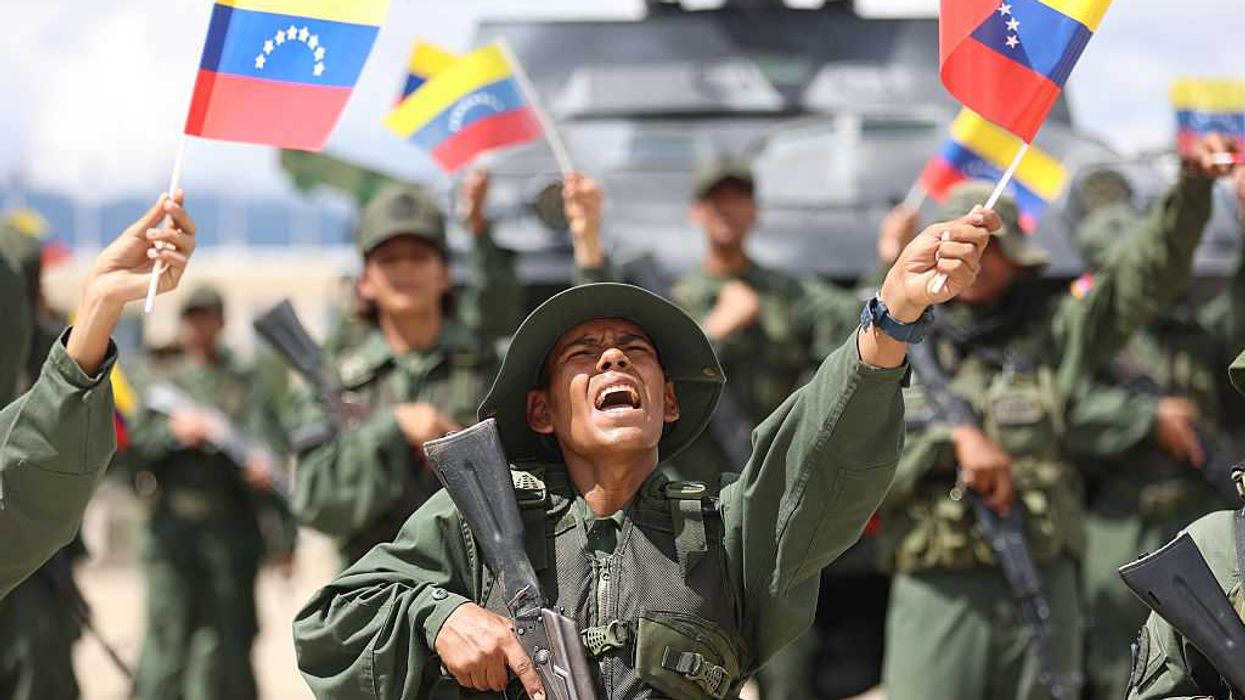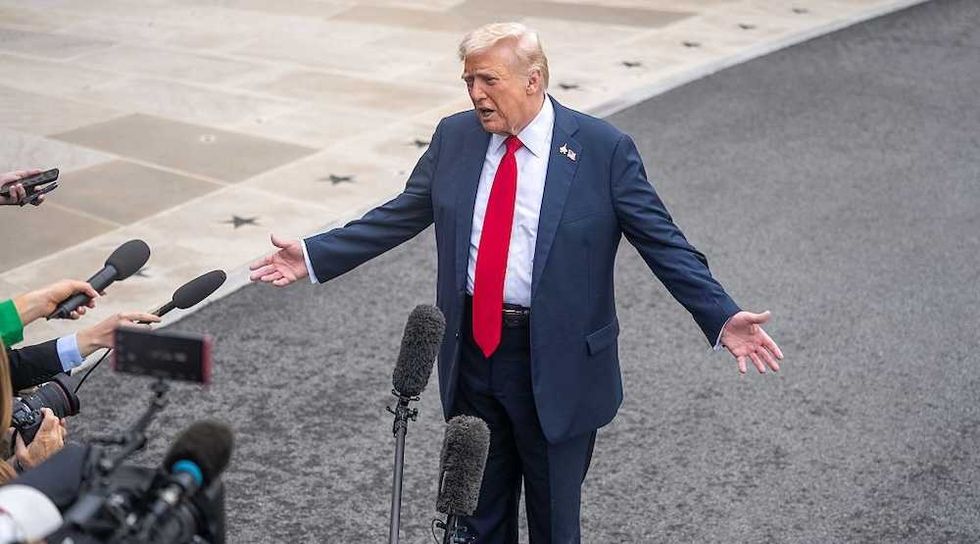
Photo by PEDRO MATTEY/AFP via Getty Images

Cocaine doesn’t come from Caracas, and American troops can’t fix Latin America.
The drums of war are echoing across the Caribbean. U.S. warships patrol the southern sea lanes, and squadrons of F-35s wait on standby in Puerto Rico. Strike lists are reportedly being drafted in Washington. The question is not whether the United States can act but whether it should. And more importantly: Who is the real enemy?
All signs point to Venezuela, long a fixation of neoconservatives who see regime change as a cure-all. For years, some in the Republican Party have argued that Venezuela sits at the center of Latin America’s drug trade and that military action is overdue.
A legitimate campaign to combat drug cartels must not morph into another regime-change crusade.
That narrative is convenient — but false. Venezuela is not a cartel state, and this is not a war on drugs.
In September, the Trump administration made two moves that reshaped the regional map. It added Venezuela to its annual list of major drug-transit and production countries and, for the first time since 1996, decertified Colombia as a U.S. partner in the war on drugs.
That decision was deliberate. It acknowledged what U.S. policymakers have long avoided saying: Colombia, not Venezuela, is the true narco-state.
Colombia remains the world’s leading producer of cocaine. From Pablo Escobar’s Medellín empire to the FARC’s narco-financing, traffickers and insurgents have repeatedly seized control of state institutions and vast territories. At their height, these groups ruled nearly half the country. Decades of U.S. intervention under “Plan Colombia” have failed to stem coca cultivation, which remains near record highs.
Venezuela, by contrast, has never been a major coca producer. Its role is mostly as a minor transit corridor for Colombian cocaine en route to global markets. Corruption is real — particularly within elements of the military, where networks of officers known as the “Cartel of the Suns” have profited from trafficking. But those are rogue actors, not the state itself.
Unlike Colombia, Venezuela has never seen cartels seize entire provinces or build autonomous zones. The country’s economic collapse has weakened state control, but it hasn’t transformed Venezuela into another Sinaloa or Medellín.
Despite this, Washington appears to be edging toward confrontation. Naval buildups and targeted strikes on Venezuelan vessels look increasingly like the opening moves of a regime-change operation.
The danger is familiar. Once again, the United States risks being drawn into a war that cannot be won — one that drains resources, destabilizes the region, and achieves nothing for the American people. The echoes of Iraq and Afghanistan are unmistakable. Those conflicts cost thousands of American lives and trillions of dollars, only to end in retreat and disillusionment.
Americans have every reason to demand a serious, coordinated strategy against the cartels that flood our communities with cocaine and fentanyl. But targeting Venezuela misreads the map. Only a fraction of the hemisphere’s narcotics pass through Venezuelan territory — and the country produces no fentanyl at all.
If Washington wants to dismantle the cartels, it must focus on the coca fields of Colombia and the trafficking corridors of Mexico, not Caracas.
RELATED: Oops! The man they call a ‘threat to democracy’ just made peace again

A U.S. invasion of Venezuela would be a disaster. The Maduro regime has already begun arming civilians. Guerrilla groups operate in both urban and jungle terrain. The population is hostile, the geography unforgiving, and the odds of a prolonged insurgency high.
The opposition, eager for power, would have every incentive to let American soldiers do its fighting — then disavow the costs.
A war would not remain confined to Venezuelan borders. It would destabilize Colombia, Ecuador, and Brazil, and unleash a wave of migrants heading north. The fall of Saddam Hussein set off migration patterns that reshaped Europe for a generation. A conflict in Venezuela could do the same to the United States.
Limited airstrikes would achieve little beyond satisfying the egos of Washington’s most hawkish voices. A full-scale invasion would create a power vacuum ripe for chaos.
President Trump faces a critical test of restraint. Interventionists inside his own administration will press for action. He must resist them. A legitimate campaign to combat drug cartels must not morph into another regime-change crusade.
America has paid dearly for those mistakes before. It should not make them again.
Adelle Nazarian